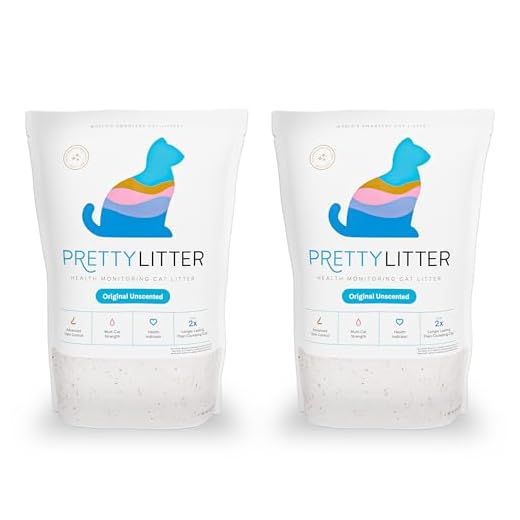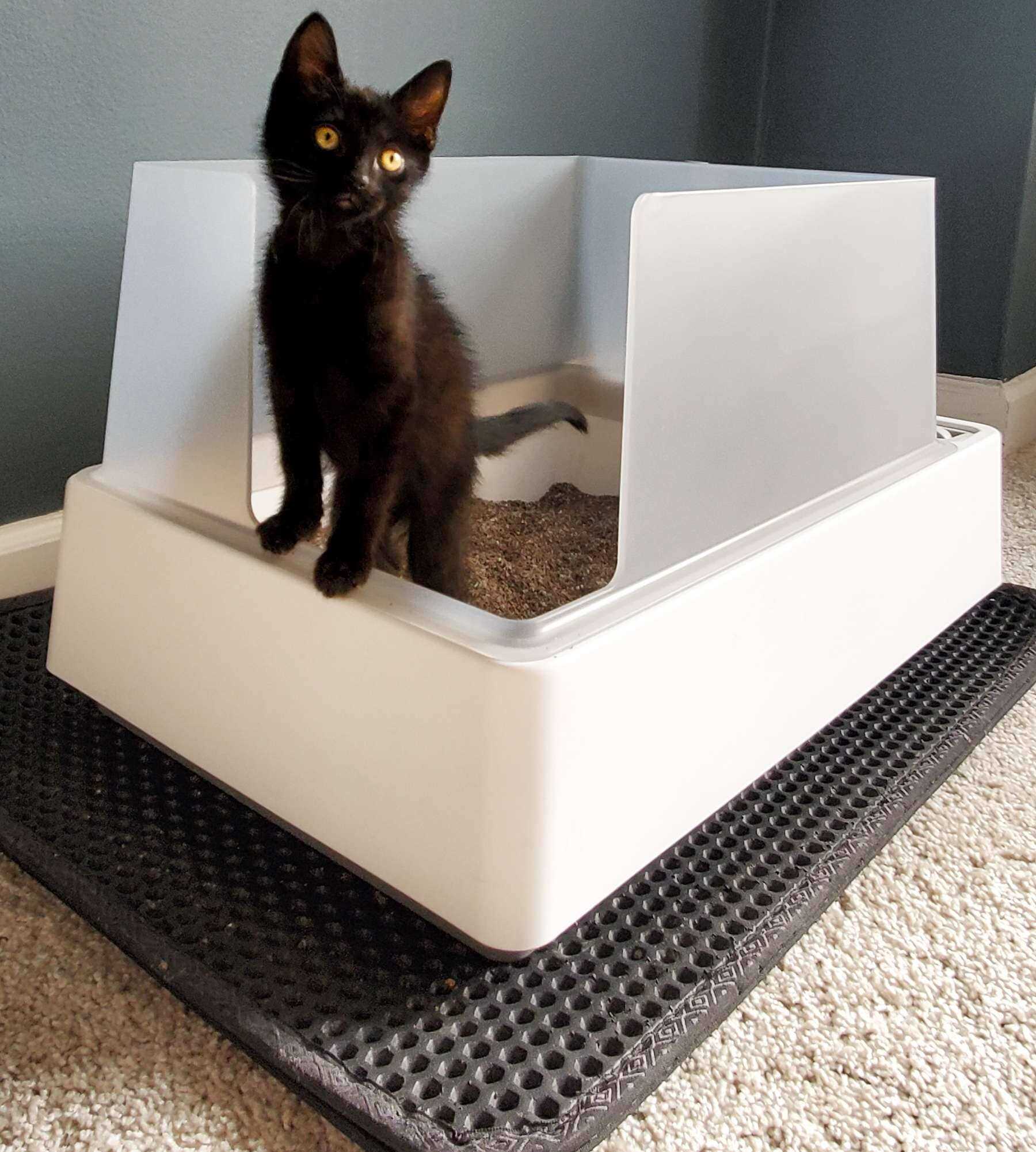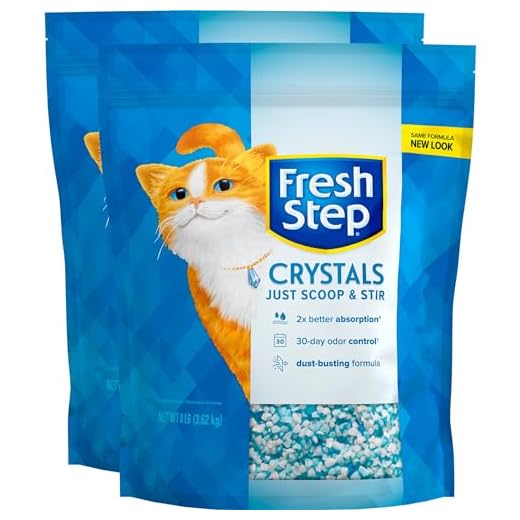




For those caring for homeless felines, selecting the right substrate can significantly improve their well-being. Clumping varieties made from natural materials are often the most suitable, as they control odor effectively and are easy to clean. Products derived from corn or wheat provide a safe and non-toxic environment for these animals.
This article discusses various options available on the market, highlighting those that are both affordable and efficient. It will be beneficial for animal rescuers, shelter workers, and individuals who want to create a comfortable space for outdoor companions. Readers will find a comparison of different types, their pros and cons, and recommendations based on specific needs.
In summary, the right choice can enhance hygiene, reduce stress, and promote a healthier habitat for homeless animals. The insights provided here will assist you in making an informed decision, ensuring that your furry friends have a safe and pleasant experience.
Best Cat Litter for Stray Cats
Choosing the right substrate for homeless felines is critical for their health and comfort. Natural, biodegradable options are preferable due to their safety and environmental benefits.
Clumping materials help in managing waste effectively, reducing odor and making cleanup simpler. Opt for unscented varieties to avoid overwhelming the sensitive noses of these animals.
Key Features to Consider
- Material Type: Look for plant-based or recycled products that are gentle on paws and do not contain harmful chemicals.
- Odor Control: Effective odor neutralization is vital to maintain a pleasant environment.
- Absorbency: High absorbent capacity ensures that moisture is contained, keeping the area dry.
- Dust-Free: Low-dust options are better for respiratory health, especially for those who may have been exposed to pollutants.
In addition to these features, consider the ease of disposal, as stray animals often rely on accessible options. Providing a suitable substrate can significantly enhance their living conditions and overall well-being.
Understanding the Needs of Stray Cats
Providing suitable environments for felines living outdoors requires an understanding of their specific needs. These animals often face challenges such as finding food, shelter, and safety. Addressing these elements can significantly improve their quality of life.
One of the primary concerns is hygiene. Strays may not have consistent access to clean areas for their natural behaviors. This can lead to health problems. Therefore, selecting materials that are absorbent and help control odors becomes important for their well-being.
Health and Comfort Factors
Health considerations play a significant role in the choice of materials. Felines are sensitive to certain substances, which can irritate their skin or respiratory systems. Opting for natural, chemical-free options is advisable to prevent health issues. A comfortable texture also encourages use, promoting better habits.
- Absorbency: Helps in managing moisture and odors.
- Safety: Non-toxic materials are crucial to avoid harmful reactions.
- Texture: Soft options provide comfort and encourage usage.
Additionally, it’s vital to consider the accessibility of the chosen products. Strays may need to navigate through various environments, so easy transport and setup are key factors. A portable solution can ensure that they have consistent access to necessary materials regardless of their location.
By understanding the unique circumstances of outdoor felines, one can make informed choices that enhance their living conditions, ultimately contributing to their health and safety.
Comparative Analysis of Litter Types
Choosing the right substrate for felines living outdoors requires careful evaluation of various options available on the market. Each type offers distinct features that cater to different needs, affecting both the comfort of the animals and the ease of maintenance for caregivers.
Clay-based options are widely recognized for their absorbency and clumping ability. They effectively contain odors and moisture, making them a popular choice. However, they may create dust, which can be problematic in certain environments. In contrast, natural materials such as wood or paper provide a softer texture and are often more environmentally friendly, but they may not control odors as effectively.
Types of Substrates
- Clay-based: Highly absorbent, excellent clumping, but can produce dust.
- Biodegradable materials: Made from corn, wheat, or recycled paper; eco-friendly but may require more frequent changing.
- Crystal-based: Absorb moisture well, reduce odor effectively, but can be more expensive.
Comparing these options, it is clear that each type has its advantages and drawbacks. For instance, while clay substrates excel in odor control, they may pose health risks due to dust inhalation. On the other hand, biodegradable choices are safer for the environment but might not offer the same level of odor management.
| Type | Odor Control | Dust Production | Cost |
|---|---|---|---|
| Clay-based | High | Moderate | Low |
| Biodegradable | Moderate | Low | Moderate |
| Crystal-based | High | Low | High |
Ultimately, the selection of the right material hinges on balancing comfort, ease of use, and environmental impact. Caregivers should consider the specific needs of the animals they are supporting, as well as their own preferences in maintenance and cost.
Recommended Brands for Outdoor Felines
Choosing the right substrate for outdoor animals requires attention to specific needs. Certain brands excel in providing durability and odor control, making them suitable for outdoor environments.
Many options focus on natural materials, ensuring safety and comfort. These products often feature clumping abilities, which facilitate easy cleanup and minimize mess.
Quality Features
- Odor Control: Many brands utilize natural additives to neutralize odors effectively.
- Dust-Free: Low dust levels help maintain a clean environment, reducing respiratory issues.
- Biodegradable Options: Eco-friendly choices are available, appealing to environmentally conscious caretakers.
- Absorbency: High absorbency levels keep areas dry and comfortable for outdoor residents.
It’s beneficial to consider the climate as well when selecting a product. Some materials may perform better in wet conditions, while others are suited for dry climates.
| Feature | Benefit |
|---|---|
| Natural Ingredients | Safe for both animals and the environment. |
| Clumping Action | Makes cleaning quick and efficient. |
| Long-Lasting | Reduces the frequency of replacement. |
Evaluating the preferences of the animals can further enhance the selection process. Observing their behavior with different types can provide insight into what they find most comfortable.
Eco-Friendly Options for Stray Cat Care
Utilizing sustainable materials can significantly improve the living conditions of outdoor felines. Organic alternatives, made from renewable resources, reduce environmental impact while ensuring the health of animals. Options like biodegradable substrates offer a practical solution for managing waste without harming the ecosystem.
Natural products, such as those derived from plants or recycled paper, are not only eco-conscious but also provide comfort for homeless animals. These materials often possess excellent absorbency and odor control, making them suitable for creating safe spaces for feral companions.
Benefits of Eco-Friendly Materials
- Reduced Environmental Impact: Using biodegradable options minimizes landfill waste and pollution.
- Healthier Options: Natural substrates are less likely to contain harmful chemicals or additives.
- Comfort: Soft textures of organic materials enhance the comfort of outdoor animals.
In addition to waste management, consider incorporating natural repellents and deterrents to protect these animals. Plant-based sprays can keep unwanted pests away, promoting a safer environment. Always check for pet-safe labels to ensure the chosen products are harmless.
Creating a sustainable feeding station with recyclable materials can further support the well-being of feral populations. Station designs should prioritize accessibility and cleanliness, encouraging regular visits while minimizing waste.
Budget-Friendly Solutions for Littering
Using affordable options for waste management can significantly reduce expenses while ensuring cleanliness for outdoor felines. One practical approach is to consider alternatives that utilize natural materials, which can be both economical and eco-friendly.
Homemade solutions can be a game changer. For instance, shredded newspaper or cardboard can serve as an inexpensive base. These materials are often free or low-cost, making them accessible for anyone. Additionally, they can be composted after use, further minimizing waste.
Alternative Materials to Consider
- Pine Pellets: Made from compressed sawdust, these pellets absorb moisture effectively and break down into sawdust when wet.
- Sand: A readily available option, sand can help control odor and is easy to clean. However, it requires regular replacement to maintain hygiene.
- Soil: Using garden soil can be a budget-friendly method. While it may not control odor as effectively, it’s a natural solution.
When implementing these methods, be mindful of the cleanliness and comfort of the environment. Regular maintenance is essential to prevent any hygiene issues.
In conclusion, selecting economical materials and exploring homemade alternatives can significantly cut down costs while ensuring a clean and safe area for outdoor felines.
Tips for Transitioning Stray Cats to New Litter
Introducing a new substrate to previously outdoor felines requires a gradual approach. Begin by mixing a small amount of the new material with the familiar one. This helps them adjust to the texture and odor without feeling overwhelmed.
Monitor the reactions of your feline companions closely. If they seem hesitant, try using a larger ratio of the old substrate to the new one initially. Over a week or so, gradually increase the proportion of the new type until they are fully transitioned.
Additional Strategies
Consider the following methods to assist in the adjustment:
- Location: Ensure the new setup is in a quiet, accessible area where they feel safe and comfortable.
- Positive Reinforcement: Reward any attempts to use the new substrate with treats or praise to create a positive association.
- Consistency: Keep the environment consistent, avoiding changes in food or routines during the transition to minimize stress.
- Patience: Allow ample time for them to adapt, as some may take longer than others to feel at ease with the new surface.
By following these suggestions, you can help ease the transition process, ensuring your new feline friends feel comfortable and secure in their new surroundings.
Maintaining Cleanliness and Hygiene for Strays
Choose a high-absorption substrate that minimizes odors and is easy to clean. Clumping materials can simplify the removal of waste, keeping the area tidy.
Establish a regular cleaning schedule to maintain hygiene. This includes daily waste removal and thorough weekly cleanings to prevent any buildup of bacteria or parasites.
Recommended Practices:
- Use a scoop with a fine mesh to easily remove clumps.
- Dispose of waste in sealed bags to prevent odors.
- Wash the litter box with mild soap weekly.
- Consider placing the box in a sheltered area to keep it dry and protected.
- Regularly check for any signs of illness, such as unusual behavior or changes in waste consistency.
Benefits of Cleanliness:
- Reduces the risk of disease transmission among felines.
- Minimizes unpleasant odors in the surrounding environment.
- Encourages healthy behavior and habitat use.
By implementing these strategies, caregivers can ensure a safe and sanitary setting for homeless felines, promoting their well-being and comfort.
Best cat litter for stray cats
Features
| Part Number | 01154 |
| Model | 01154 |
| Is Adult Product | |
| Size | 27 lbs. |
Features
| Part Number | 10194 |
| Model | WB10194 |
| Color | Red |
| Release Date | 2020-09-01T00:00:01Z |
| Size | 32-Pound |
Features
| Part Number | 10195 |
| Model | WB10195 |
| Color | Purple |
| Release Date | 2020-09-01T00:00:01Z |
| Size | 32-Pound |
Features
| Part Number | Catspot 5 Pounds |
| Model | Catspot 5 Pounds |
| Size | 3 Bags |
Features
| Part Number | PL6-2 |
| Model | pl6Lotus-2 |
| Color | White |
| Size | 6 LB (Pack of 2) |
Features
| Part Number | 31595 |
| Model | 31595 |
| Color | Gray |
| Is Adult Product | |
| Release Date | 2020-08-13T00:00:01Z |
| Size | 8 Pounds (Pack of 2) |
| Publication Date | 2010-05-11T00:00:01Z |
Video:
FAQ:
What type of cat litter is best for stray cats?
When choosing cat litter for stray cats, clumping litter is often recommended. This type of litter makes it easy to clean and maintain the area. Non-clumping options, such as clay or natural materials like pine, can also be suitable, especially if you’re looking for a more eco-friendly choice. Ultimately, the best option depends on the specific needs of the strays in your care, such as their comfort and health considerations.
How can I help stray cats with litter options?
To help stray cats, consider setting up a designated area with a litter box that’s easily accessible. You can use clumping litter for easier cleaning, or an eco-friendly option if you prefer. Make sure to keep the area clean by regularly scooping out waste. It’s also beneficial to provide fresh water and food nearby to encourage the cats to use the litter box instead of going elsewhere.
Are there any scents in cat litter that might repel stray cats?
Stray cats may be sensitive to strong scents. Avoid using litters with added fragrances, as these can be off-putting and may deter them from using the litter box. Instead, opt for unscented varieties, which are more likely to be accepted by strays. Natural litters made from materials like corn or wheat tend to have minimal scent and can be more inviting.
What are the benefits of using biodegradable litter for strays?
Biodegradable litter options, such as those made from recycled paper, corn, or wheat, are beneficial for stray cats and the environment. They break down naturally and reduce waste in landfills. Additionally, these litters are often less harsh on the paws of stray cats and can minimize any potential health issues. Using biodegradable litter also supports sustainable practices, which can be a consideration for those caring for strays.
How often should I change the litter for stray cats?
Changing the litter frequently is important for maintaining a clean environment for stray cats. Ideally, you should scoop out waste daily. Depending on the type of litter used, a complete change may be needed every 1 to 2 weeks. If you notice strong odors or if the litter becomes clumped and dirty, it’s best to change it sooner. Keeping the litter box clean encourages strays to use it consistently.










